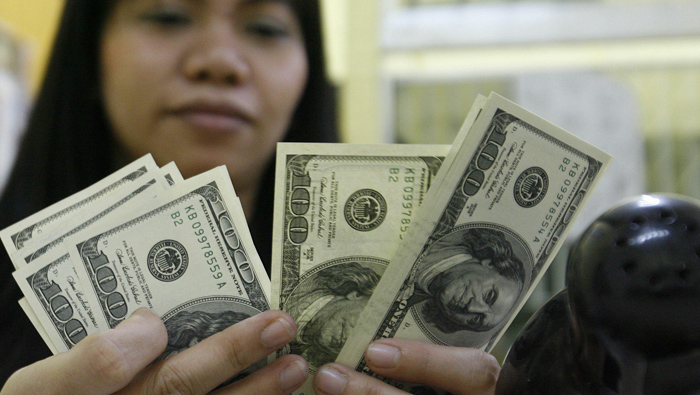
Muscat: Tumbling of the United States dollar against major world currencies in the aftermath of Donald Trump’s election victory will marginally benefit Oman’s economy.
Since Omani rial is pegged to the US dollar, any depreciation in dollar value is directly reflected on the local currency and will help local exporters to effectively compete in the overseas markets.
In early trading, the greenback fell as much as 3.8 per cent against the Japanese yen, the biggest intraday decline since Britain’s EU exit referendum, 2.4 per cent against the euro and 2.3 per cent against the Swiss franc.
“There would be some benefits if dollar weakens, in terms of exports because they are not able to compete when the dollar is strong,” said Kanaga Sundar, head of research at Gulf Baader Capital Markets.
Dollar value has moved up in the last two years, which had adversely affected Omani exporters, including non-oil exporters. The non-oil exports from Oman plunged by 24.9 per cent to OMR985.3 million in the first five months (January-May) of 2016, against OMR1.31 billion a year earlier, according to the latest monthly statistics released by the National Centre for Statistics and Information.
“In an ideal situation, exports from Oman will increase and import cost will go up,” said S. Suresh Kumar, head of research at Al Maha Financial Services. “However, I don’t expect a substantial impact,” he added. Also, more clarity will emerge only after some weeks, after the newly elected government formulates its economic and foreign policies.
As far as the crude oil price is concerned, demand and supply dynamics are different. "It will depend on Opec’s decision to freeze output and growth in demand,” noted Suresh Kumar.
The future trend in dollar value will eventually depend on US Federal Reserve policy on interest rate, which is expected by the middle of December. All indications are pointing to an increase in Federal Reserve rates, which will help dollar to recover.
Meanwhile, global markets were thrown into disarray as Donald Trump won the US presidential election, shocking traders after recent polls indicated that Hillary Clinton would be the victor. Futures on the S&P 500 Index plunged by a 5 per cent limit that triggers trading curbs and contracts on European equities sank more than 4 percent.
In the GCC region, barring Saudi and Qatar, all Gulf markets tumbled after the election results, but recovered marginally before closing the session. Oman’s Muscat Securities Market edged down by 32.75 points (or 0.6 per cent) to close at 5,406.43 points on Wednesday on weak sentiment. As many as 23.07 million shares changed hands on the Muscat bourse, which generated a turnover of OMR9.38 million on Wednesday. In fact, the market shed 286 points (or 5 per cent) in the last one month.
“Almost all markets in the Gulf region are showing weak trend these days,” said Suresh Kumar. But Gulf bourses marginally recovered towards the end of the trading session. Among various bourses, Dubai lost 2.09 per cent, Abu Dhabi shed 1.59 per cent and Kuwait plunged 1.18 per cent on Wednesday.